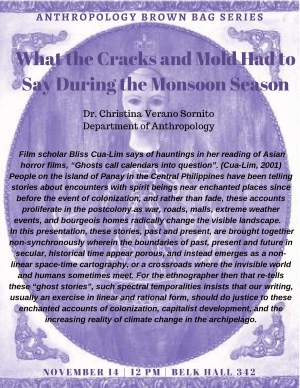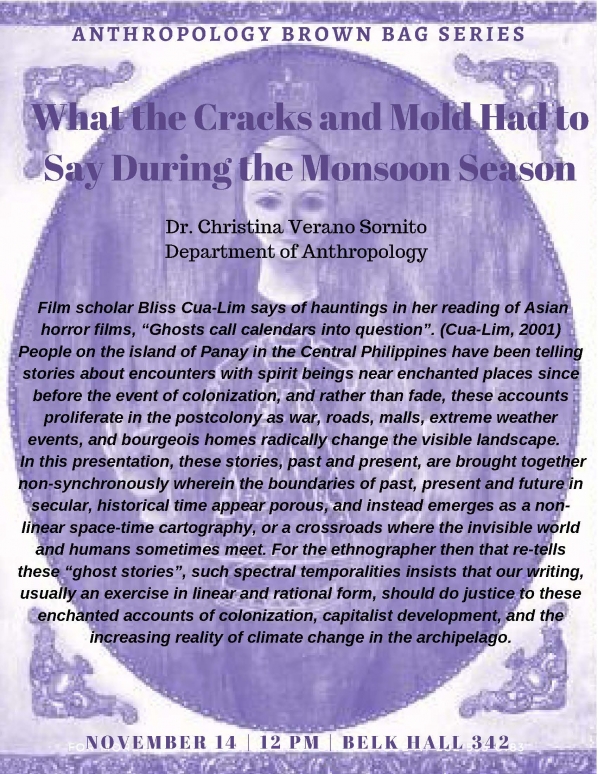Dr. Christina Verano Sornito
Wednesday, Nov. 14, 2018
12:00 p.m.
Anne Belk Hall, Room 342
Film scholar Bliss Cua-Lim says of hauntings in her reading of Asian horror films, “Ghosts call calendars into question” (Cua-Lim, 2001). People on the island of Panay in the Central Philippines have been telling stories about encounters with spirit beings near enchanted places since before the event of colonization, and rather than fade, these accounts proliferate in the postcolony as war, roads, malls, extreme weather events and bourgeois homes radically change the visible landscape.
In this presentation, these stories, past and present, are brought together non-synchronously wherein the boundaries of past, present and future in secular, historical time appear porous, and instead emerges as a nonlinear space-time cartography, or a crossroads where the invisible world and humans sometimes meet. For the ethnographer then that re-tells these “ghost stories,” such spectral temporalities insists that our writing, usually an exercise in linear and rational form, should do justice to these enchanted accounts of colonization, capitalist development and the increasing reality of climate change in the archipelago.
Sornito is an anthropologist broadly trained in cultural anthropology with a focus on media theory, religion and Southeast Asia. Her dissertation, "Haunted Legacies: Healing and Sorcery in a Visayan Community," examines the convergence of global capitalism, colonial history and the indigenous spirit world in the central Philippines. In her research, the main themes she addresses are 1) apocalypse, 2) shamanism (broadly known in the Philippines as baybaylanism) and 3) haunted landscapes of modernity and postcolonial legacies.
This Anthropology Brown Bag event is sponsored by the Department of Anthropology, in the College of Arts and Sciences at Appalachian State University.
###
About the Department of Anthropology
The Department of Anthropology offers a comparative and holistic approach to the study of the human experience. The anthropological perspective provides a broad understanding of the origins as well as the meaning of physical and cultural diversity in the world — past, present and future. Learn more at https://anthro.appstate.edu.

